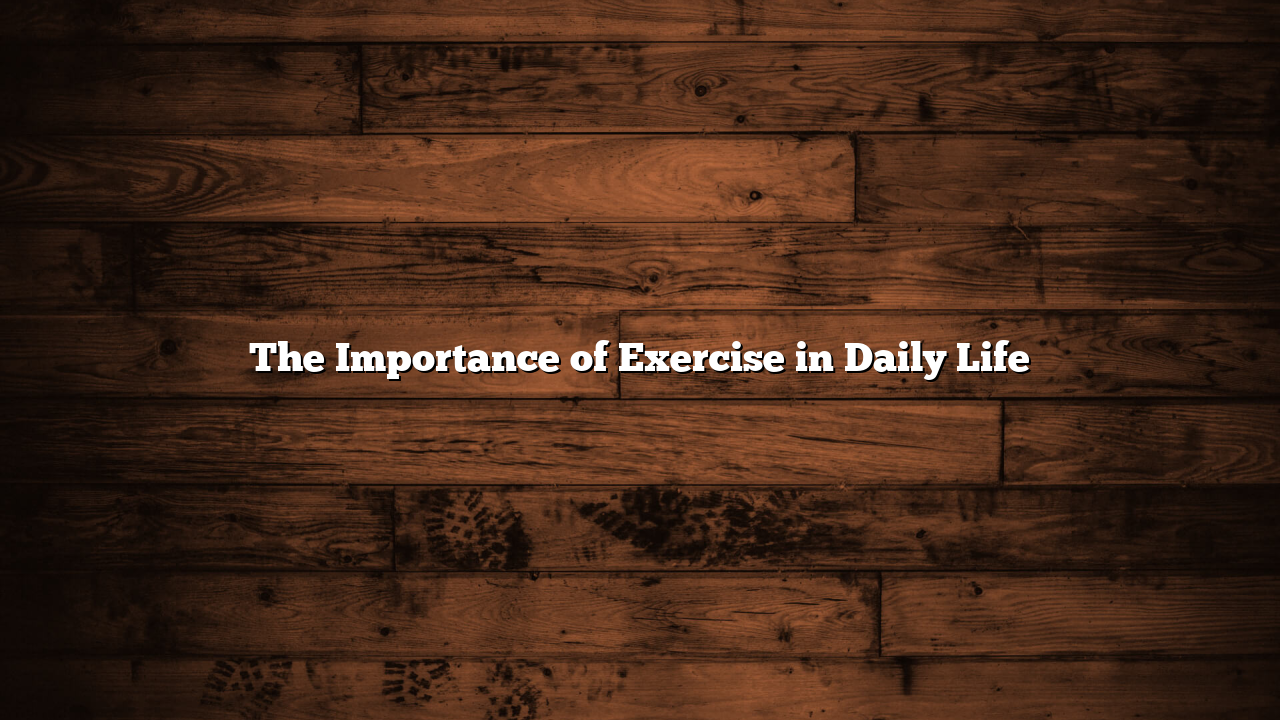In today’s fast-paced world, many people find themselves caught up in the demands of work, school, and other responsibilities, often neglecting one of the most essential aspects of a healthy lifestyle: exercise. Physical activity is more than just a way to stay in shape; it plays a crucial role in maintaining overall well-being, both physically and mentally. Understanding the importance of exercise can help individuals maritim4d incorporate it into their daily routines, leading to healthier and more fulfilling lives.
One of the most obvious benefits of exercise is its positive effect on physical health. Regular physical activity strengthens the heart, improves circulation, and helps maintain healthy blood pressure levels. It also boosts lung capacity and endurance, making daily activities easier to manage. Furthermore, exercise helps regulate weight by burning calories and increasing metabolism. For many, this is a key factor in preventing obesity, which is linked to serious health issues such as diabetes, heart disease, and stroke.
Beyond physical health, exercise contributes significantly to mental well-being. Engaging in regular activity stimulates the release of endorphins, often called “feel-good hormones,” which reduce stress and promote a positive mood. Exercise has been shown to decrease symptoms of anxiety and depression, making it a natural and effective way to improve mental health. In addition, physical activity can enhance cognitive function, improving focus, memory, and even creativity.
Another crucial aspect of exercise is its role in building discipline and resilience. Committing to a consistent workout routine requires motivation, time management, and determination. Over time, these qualities extend to other areas of life, helping individuals achieve personal and professional goals. Whether it is running every morning, practicing yoga, or lifting weights, exercise teaches persistence and the value of hard work.
Exercise also fosters social connections and community. Many people join gyms, sports teams, or fitness classes, where they meet others with similar goals and interests. This sense of belonging can provide encouragement, accountability, and even lasting friendships. Exercising with others can make the experience more enjoyable and help individuals stay committed to their routines.
Importantly, exercise is not limited to intense gym workouts or competitive sports. Simple activities such as walking, cycling, or stretching can provide tremendous benefits if done consistently. The key is to find a form of physical activity that is enjoyable and sustainable. For example, someone who dislikes running may prefer swimming, dancing, or even hiking. Making exercise fun increases the likelihood of sticking with it in the long term.
In addition, regular exercise can improve sleep quality. Many people struggle with insomnia or restless nights due to stress and irregular schedules. Physical activity helps regulate the body’s internal clock, leading to deeper and more restorative sleep. Better sleep, in turn, contributes to higher energy levels, improved concentration, and stronger immune function.
Ultimately, exercise should be seen as an investment in one’s future. By dedicating time to physical activity today, individuals can prevent many health issues, boost mental strength, and enjoy a better quality of life as they age. Even small changes—such as choosing the stairs instead of the elevator or taking a short walk during breaks—can add up to significant improvements over time.
In conclusion, exercise is far more than a way to look fit; it is a foundation for overall health and happiness. Its benefits extend to the body, the mind, and even social life, making it an indispensable part of daily living. By prioritizing regular physical activity, individuals can build a healthier lifestyle and unlock their full potential.
